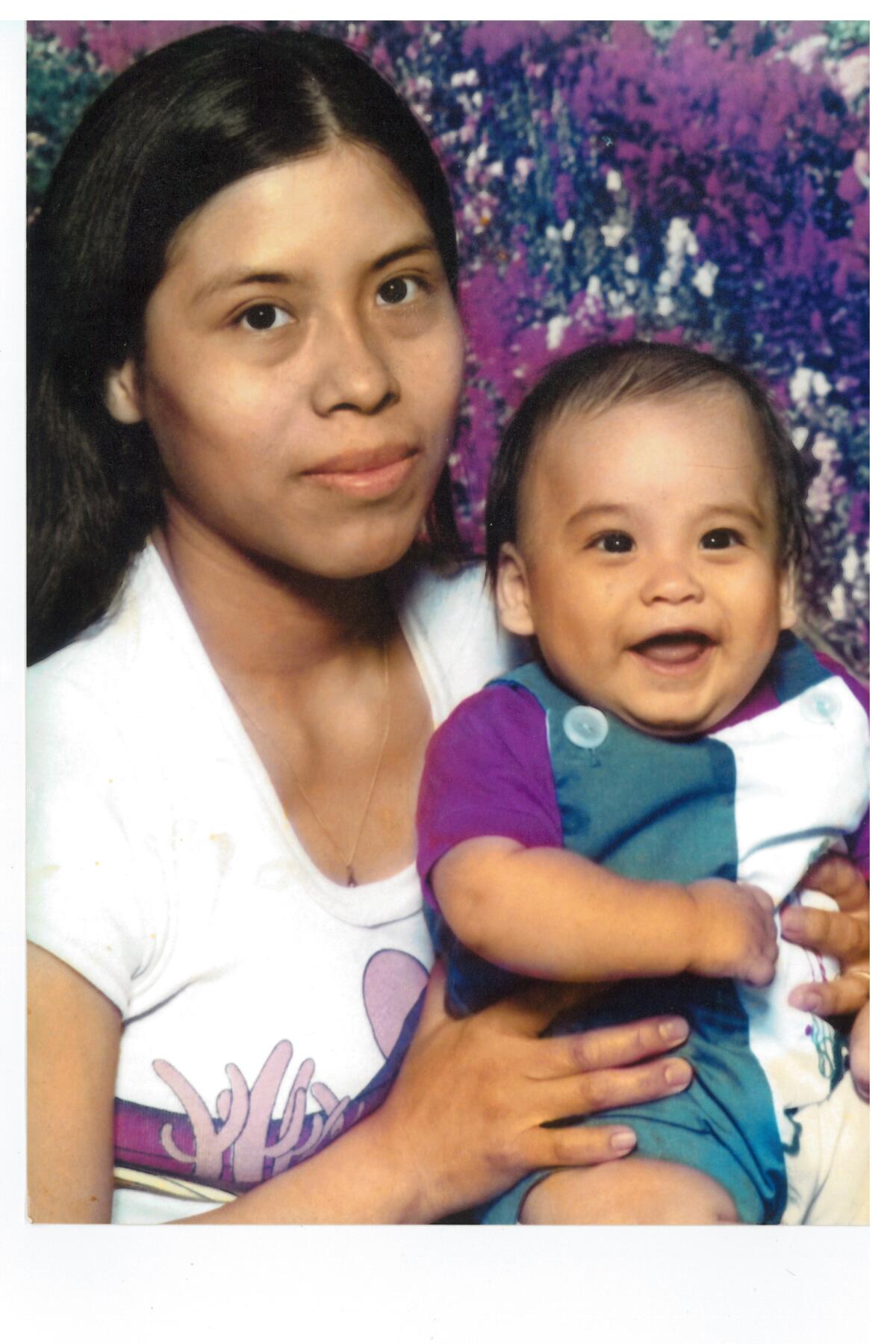L.A. serial killer convicted of five 2014 murders faces life in prison

- Share via
A man who killed five people and injured several others during a months-long shooting rampage that stretched from the San Fernando Valley to West Hollywood in 2014 was convicted of all charges Wednesday and will spend the rest of his life in prison, prosecutors said.
Alexander Hernandez, 42, was found guilty of five counts of murder with special circumstances, 11 counts of attempted murder and several other offenses following a six-week trial, according to Los Angeles County Deputy Dist. Atty. Michele Hanisee.
Under California law, a person convicted of murder with special circumstances can only be sentenced to death or life without the possibility of parole. Prosecutors originally sought the death penalty against Hernandez, but Dist. Atty. George Gascón barred his prosecutors from seeking capital punishment after his election in 2020.
“A verdict in a murder case is never a triumph, it’s just a relief,” Hanisee said. “A relief that the victims can start to move on with their lives.”
Hernandez was arrested in August 2014 and accused of going on a five-day shooting rampage that left several people dead in the San Fernando Valley. At the time, police referred to him as a serial killer.
His attacks actually started months earlier, when Hernandez shot and killed Sergio Sanchez while driving on the 210 Freeway near Sylmar, leaving the man slumped dead in his car on an off-ramp, court records show.
Hernandez did not know Sanchez, and there was no discernible motive in any of his attacks, according to Hanisee. In many of them, he seemed to fire at random from his vehicle.
After Sanchez’s killing, Hernandez carried out a string of several shootings in which people were gravely wounded but survived. They included a May 2014 attack in Northridge in which he opened fire on a 19-year-old who was bringing his girlfriend home after prom. That victim was partially paralyzed, records show.
In August 2014, Hernandez armed himself with a shotgun and committed another seven shootings over a five-day period, records show. He killed Gilardo Morales, Mariana Franco, Michael Planells and Gloria Tovar, records show. Hernandez also shot and killed several dogs, and pleaded guilty to animal cruelty charges ahead of his trial.
Hanisee said video evidence presented at trial showed Hernandez “stalking” his victims on more than one occasion. He followed Franco’s vehicle for several blocks, according to Hanisee, and circled a park in his car repeatedly before shooting Planells at close range with a shotgun.
“He was hunting for people,” she said.
All told, Hernandez killed five people, wounded seven others and shot at four more, including two 12-year-olds who were in a car with their parents.
Johanna Archer, whose son Julian was the victim left partially paralyzed in one of Hernandez’s attacks, said her son can only walk short distances with a cane due to nerve damage and largely relies on a wheelchair.
Nonetheless, she said, her son has forgiven his attacker. He is attending Santa Monica College with the hopes of soon finding a job outside the state, Archer said.
“Miraculously he has no real resentment towards Alexander Hernandez, understanding that he is obviously mentally unstable with the horrible crimes he committed,” she said.
In the years prior to the shootings, Hernandez had been arrested on vandalism, drug possession and weapons charges, according to court records. He was also arrested after he allegedly brandished a knife at his cousin in June 2014, in the midst of the shootings, but prosecutors declined to charge him.
It is not clear why prosecutors did not bring charges in that case. Hernandez had already shot and wounded another man the same day he was arrested, Hanisee said, but police had no information about that shooting at the time.
Several factors caused the case to stretch nearly eight years. Questions were raised about Hernandez’s mental competency at various points, and prosecutors’ initial pursuit of the death penalty also added extra hurdles, Hanisee said. Trials were also put on hold in L.A. County for 18 months due to the COVID-19 pandemic.
Many of the victims’ families spent time in court during the last three weeks, and Hanisee said the eight years between the shootings and the verdict have done little to dull the pain they feel.
“It’s hard. It’s awful when I speak to them. They are still heavily affected. They’re crying. There’s a lot of tears involved,” she said. “It’s the sort of thing that never leaves them.”
More to Read
Sign up for Essential California
The most important California stories and recommendations in your inbox every morning.
You may occasionally receive promotional content from the Los Angeles Times.











